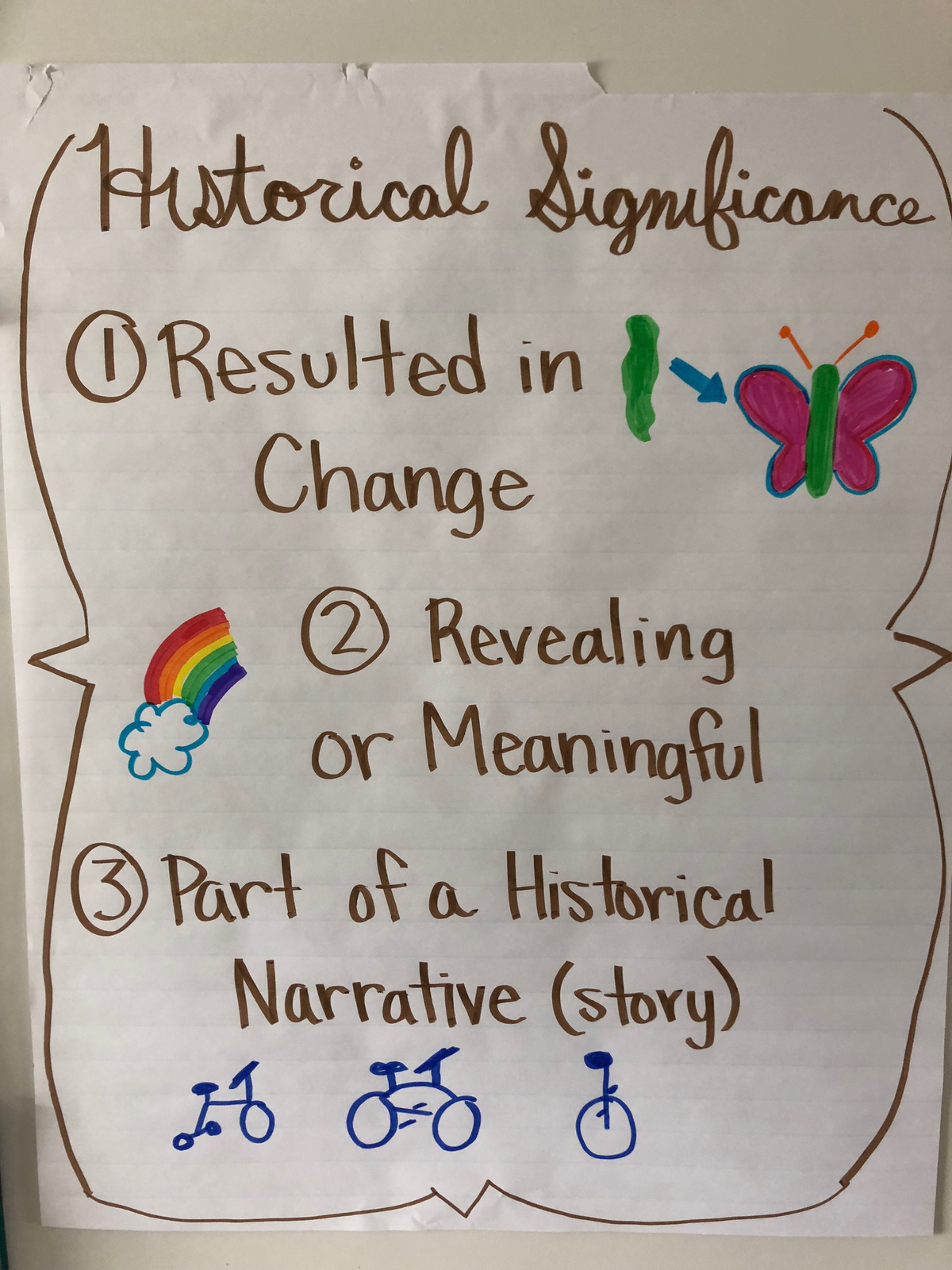Informed by their worldview, and based on the evidence they emphasize and the questions they ask, historians determine what is most significant to know about the past. Our understanding of the past varies over time and shifts according to the positionality of the author.
The below exercises offer opportunities to explicitly introduce students to the concept of significance.
Pre-Lesson
Understanding Historical Significance: Students use their own life experiences as a means of exploring how historians determine significance.
Content Application
Each of these scaffolds can be customized to support your unit of study while reinforcing the historical thinking concept.
- Constructing Narratives - Timeline Analysis
- Competing Timelines
- Comparing Historical Arguments
- Example: WWII Timelines
Critical Pedagogy
Culminating Project
Creating a Memorial: Students create a memorial to a person, group or event of significance.
Connection to Local History
Field Study Guide: Use this activity while on a visit to a local memorial or museum.
Landmark Analysis: Use this tool to help students analyze a local landmark, memorial, or statue.
Teaching Reflection
Making History Teaching Reflection: Use this as a tool to refine and revise teaching strategies within this module.
Related Model Lesson
- Introduction to Historiography (8th grade)
- Introduction to Historiography (10th grade)
- Memorializing the Past (4th/8th grade)
A Note on Supporting Literacy Development: We encourage you to refer to these UCBHSSP planning templates as you make use of the Making History modules. Additional UCBHSSP strategies can be found in our literacy handbook, Access for All Learners.


